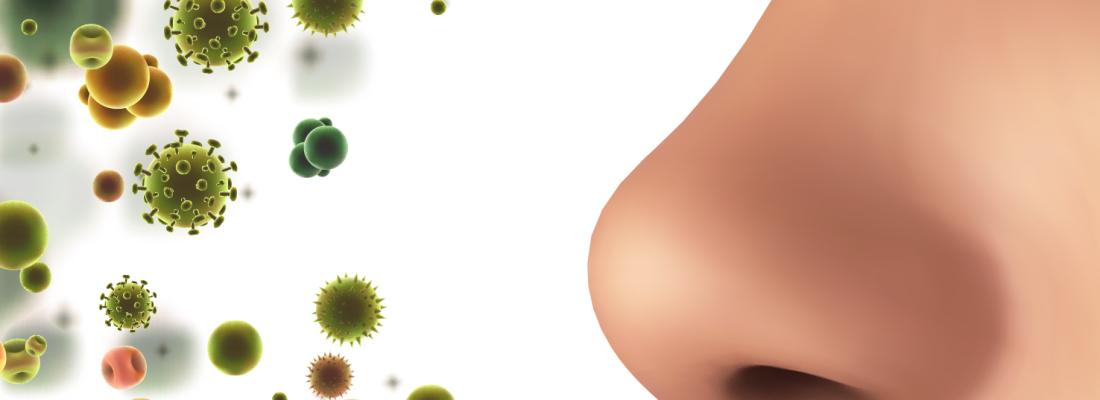Food, Global Health Reading time 2 min
COVID-19: A potential treatment for loss of smell
Published on 27 February 2024

COVID-19 is known to cause loss of smell in certain patients. While this symptom is generally temporary, approximately 10% of patients may suffer from it for 6 months or more.
Earlier research carried out by a team of researchers from INRAE and ENVA observed that the SARS-CoV-2 infected olfactory mucosa is invaded by immune cells leading to its destruction and prolonged inflammation. Based on these observations, the same team decided to assess the effectiveness of corticosteroids--known for their anti-inflammatory properties—in restoring the sense of smell[1].
Their results support the existence of a direct link between the loss of smell caused by the virus and a decrease in the olfactory neuron population in the nasal mucosa[2]. In addition, they show that early treatment with dexamethasone, a commonly used corticosteroid, improves the recovery of olfactory abilities in animals.
The improvement of the olfactory capacities is associated with a reduction of the immunity cells in the mucosa, and an increased level of regeneration of the olfactory neuron population. These results suggest that the corticosteroid treatments currently used—which have not been very successful in the treatment of prolonged anosmia—could be more effective if prescribed early, at the onset of symptoms of loss of smell.
[1] Financed by the ANR (CORAR) and the ANRS (UCRAH)
[2] The olfactory neurons found in the mucosa are in direct contact with the odours passing through the nose and are responsible for detecting odorous molecules.
Reference:
Laetitia Merle-Nguyen, Ophélie Ando-Grard, Clara Bourgon, Audrey St Albin, Juliette Jacquelin, Bernard Klonjkowski, Sophie Le Poder, Nicolas Meunier, Early corticosteroid treatment enhances recovery from SARS-CoV-2 induced loss of smell in hamster. Brain, Behavior, and Immunity, 2024, ISSN 0889-159, https://doi.org/10.1016/j.bbi.2024.02.020.
